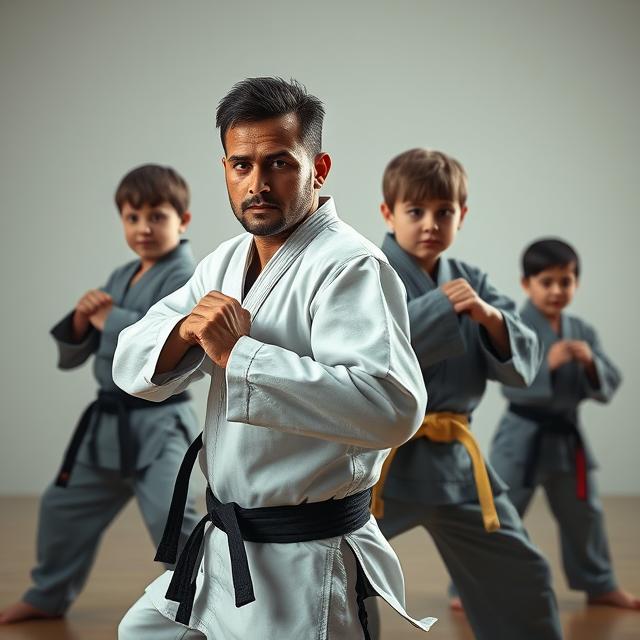Technique, Precision, and Practice
Tang Soo Do, a traditional Korean martial art, emphasizes discipline, precision, and fluid movement. Among its repertoire of techniques, the roundhouse kick, or “Tollyo Cha Gi,” stands out as both a fundamental and an elegant move. Proper execution of the roundhouse kick requires a blend of strength, accuracy, and balance, making it as much an art as it is a physical skill. This article will guide you through the steps, principles, and finer details for demonstrating the roundhouse kick in Tang Soo Do effectively.
Understanding the Roundhouse Kick
The roundhouse kick is a versatile technique, used for striking an opponent’s midsection, head, or even legs. Its essence lies in the rotational motion of the hips and the precision of the striking surface. In Tang Soo Do, this kick symbolizes the harmony of power and grace, and it serves as a cornerstone for practitioners of all levels.
Key Objectives of the Roundhouse Kick
– **Accuracy:** Hitting the intended target with precision.
– **Speed:** Executing the kick swiftly to neutralize an opponent.
– **Power:** Generating force through proper body mechanics.
– **Control:** Maintaining balance and readiness for follow-up moves.
Preparation: The Foundation of a Strong Kick
Before delving into the execution, it is crucial to establish a solid groundwork. A well-prepared stance and proper mindset set the stage for an effective roundhouse kick.
The Fighting Stance
Begin in the Tang Soo Do fighting stance, or “Choon Bee Jaseh”:
– Place your feet shoulder-width apart, with your weight evenly distributed.
– The lead foot should point slightly forward, while the back foot is angled at 45 degrees.
– Keep your knees slightly bent for stability and mobility.
– Raise your hands to guard your face, with elbows close to your torso.
This stance ensures balance and readiness for both offensive and defensive movements.
Focus and Visualization
Visualization is vital in martial arts. Imagine your target and the path your kick will take. Maintain a calm yet focused mindset, as tension can hinder fluidity and precision.
Executing the Roundhouse Kick
The roundhouse kick is broken into distinct phases: chambering, rotation, extension, and retraction. Each phase plays a pivotal role in the overall execution.
1. Chambering
Chambering is the preparatory phase where you lift your kicking leg:
– Pivot on the ball of your supporting foot, turning your heel outward. This motion aligns your hips for the kick.
– Lift your knee to waist height, with your shin parallel to the ground. The toes of your kicking foot should be pointed.
– Keep your arms steady in a guarding position. Avoid dropping them, as this leaves you vulnerable.
Chambering not only sets the trajectory but also stores potential energy for the kick.
2. Rotation
The rotational motion of the hips is the powerhouse of the roundhouse kick:
– Engage your core and rotate your hips swiftly in the direction of the kick.
– Simultaneously pivot your supporting foot further to enhance the range of motion.
– Ensure that your upper body remains balanced and aligned.
Proper rotation maximizes power and creates the iconic sweeping arc of the kick.
3. Extension
The extension phase involves striking the target:
– Straighten your leg swiftly, with the ball of your foot or the instep (depending on the target) as the striking surface.
– Aim for the target with precision, ensuring that the kick lands with controlled force.
– Keep your eyes on the target throughout the motion.
Remember, speed is essential during this phase to enhance both impact and effectiveness.
4. Retraction
Retraction is often overlooked but is critical for recovery and defense:
– Quickly pull your kicking leg back to the chambered position.
– Pivot your supporting foot back to its original orientation.
– Return to your fighting stance with balance and readiness.
Retracting your leg prevents opponents from grabbing it and prepares you for consecutive moves.
Common Mistakes and How to Avoid Them
Even seasoned practitioners can make errors during the roundhouse kick. Here are common mistakes and ways to correct them:
- **Dropping the Guard:** Always keep your hands up to protect your face and torso.
- **Inadequate Pivot:** A poor pivot restricts hip rotation, reducing power. Focus on proper foot alignment.
- **Leaning Backward:** Maintain an upright posture to avoid losing balance.
- **Overextension:** Do not overreach with your kick; this compromises control and increases the risk of injury.
Drills to Perfect Your Roundhouse Kick
Consistent practice is the key to mastery. Incorporate these drills into your training routine:
Focus Pad Training
Use a focus pad to practice accuracy and striking power. Have a partner hold the pad at different heights and angles to simulate real-life scenarios.
Wall Support Practice
Hold onto a wall or sturdy object to isolate the kicking leg. Focus on perfecting your chambering, rotation, and extension without worrying about balance.
Shadow Kicking
Perform the roundhouse kick in the air, visualizing a target. This drill helps refine form and fluidity.
Dynamic Balance Training
Balance on one leg for extended periods to strengthen stabilizing muscles. This improves control during the kick.
The Philosophy Behind the Kick
In Tang Soo Do, every technique carries a deeper philosophical meaning. The roundhouse kick, with its sweeping motion, symbolizes adaptability and fluidity. Practicing this kick is not just about physical skill but also about embodying the principles of harmony and balance.
Conclusion
The roundhouse kick in Tang Soo Do is a beautiful amalgamation of technique, power, and artistry. By focusing on proper preparation, execution, and consistent practice, martial artists can elevate their skills and demonstrate this iconic move with precision and grace. Whether you are a beginner or an advanced practitioner, the roundhouse kick represents a journey of continuous learning and self-improvement—an embodiment of the martial spirit.

